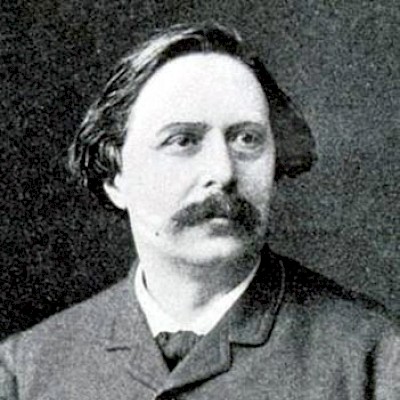He was born into a Protestant family. Orphaned as a mother at the age of 5 and as a father at the age of 14, he lived with his history teacher at the Jean Sturm institute until he was 20. After his high school, Édouard Schuré enrolled in the Faculty of Law to please his maternal grandfather who was the dean, but this discipline bores him considerably, so he spends most afternoons at the Faculty of Letters with young students and artists in love, like him, with literature and art, among who are his friend and musician Victor Nessler and the historian Rudolf Reuss. After finishing his law studies, he decides to dedicate himself to poetry. In 1861, however, he obtained his law license.
He studied philosophers with great interest, particularly Descartes, Spinoza, Kant, Hegel, Schelling, Fichte, Schopenhauer, and Nietzsche. Intuitively drawn to the ancient mysteries, he read with great interest a book containing a detailed description of the 'Eleusinian Mysteries', which made a great impression on him. Upon his grandfather's death, he inherited enough to live on his possessions and income. He quickly abandoned law and moved to Germany in order to write a history of Lied which he had already undertaken under the direction of one of his institute teachers, Albert Grün, a German political refugee who initiated him into German literature and philosophy from Hegel.
Alsatian, Edouard Schuré has a double culture which gives him an open and even universal spirit that will expand even more as a result of his encounter with Margarita Albana. In 1866, Schuré is still in Berlin and assiduously frequents the literary salons that she is passionate about. On October 18, 1866, he married Mathilde Nessler and the marriage was established in Paris. He publishes his 'History of Lied', which introduces him to literary circles. He is received in the halls of the Countess of Agoult, where he meets Renan, Michelet, Taine and Jules Ferry. He will say of himself, as G. Jeanclaude highlights in his work on Schuré: Three great personalities acted in a sovereign way over my life: Richard Wagner, Margarita Albana and Rudolf Steiner. If I could investigate the mystery of these three personalities and make the synthesis, I would have solved the problem of my life.
